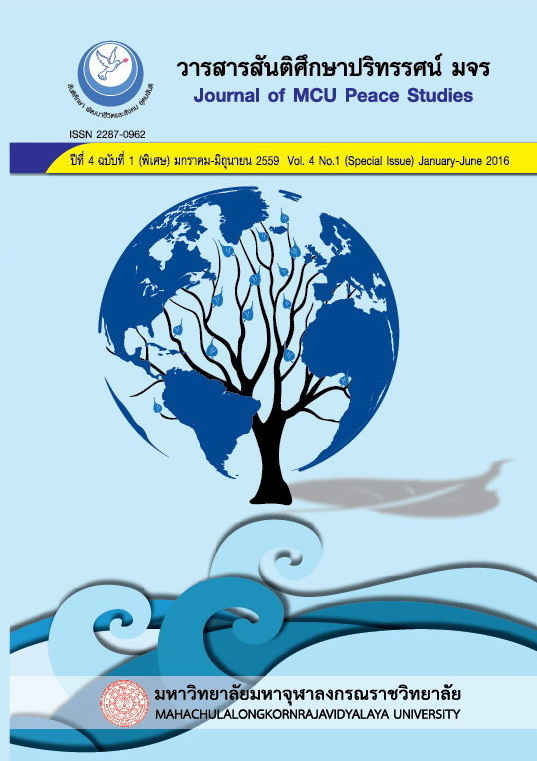The Role of Phravinayadhara in Theravada Buddhist Philosophy
Main Article Content
บทคัดย่อ
Phravinayadhara’s role in Theravada Buddhist philosophy and 2) to analyze the
latter roles in Theravada Buddhist philosophy. The methodology of the thesis
was based on the qualitative research, studying data from such secondary
sources as The Tipitaka, texts on Theravada Buddhism and articles so as to gain
the theme in accordance with orders of the research.
Results of the research reveal the following findings :
1) Buddhist monks are one of 4 assemblies in Buddhism. Their current
roles and key duties are to lengthen Buddhism’s existence and study its
teachings. To study Buddhism’s teachings, it emphasizes three principal learning
principles of studying the scriptures, training in higher mentality and training in
higher wisdom. All of which are the mandatory tasks that Buddhist monks must
observe in order to lead their happy and prosperous holy lives, especially they
must stringently follow their disciplinary codes of conduct. It was evident in
Buddhism that there were a number of Phravinayadharas in both male and
female Buddhist monks’ groups. Two of them being accredited by the Buddha
in the position of excellence in their disciplinary specialists were Phra Upali
Thera and Patacara Theri, who played pivotal roles as those strictly following
disciplines. As a consequence, they were regarded as the unique identity of
Theravada Buddhist clergy because of their demeanor and strict practice
following their disciplines to date.
2) Phravinayadhara, literally meaning a Buddhist monk who is well
versed in disciplinary codes of conduct, refers to the one specializing in them. He skillfully studies and strictly follows them. Being intelligent, he can settle an offence fairly and clearly beyond monastic order’s doubt whenever it arises. In addition, he himself is fully qualified with morality, ethics and fairness to the great extent that his decisive judgement of the case is absolutely acceptable by both sides. As for the word ‘Phravinayadhikara’ has been coined by Thai monastic clergy. Such a Buddhist monk has been appointed by provincial monastic governor, of which his duties are to keep both monks’ and novices’ disciplinary codes of conduct under surveillance, offer pieces of advice, supervise their unsuitable activities and guide them to correctly follow their disciplines
Article Details
ทัศนะและความคิดเห็นที่ปรากฏในบทความในวารสาร ถือเป็นความรับผิดชอบของผู้เขียนบทความนั้น และไม่ถือเป็นทัศนะและความรับผิดชอบของกองบรรณาธิการ ยินยอมว่าบทความเป็นลิขสิทธิ์ของวารสาร


